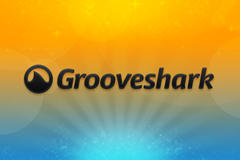Big 4 Fall Out Over Grooveshark
 Remember back in October, when EMI were negotiating a deal with Grooveshark, then changed their mind and decided to sue them, then broke off the pursuit of their lawsuit and instead signed a licensing agreement with them? The press releases (via All things digital) went something like this:
Remember back in October, when EMI were negotiating a deal with Grooveshark, then changed their mind and decided to sue them, then broke off the pursuit of their lawsuit and instead signed a licensing agreement with them? The press releases (via All things digital) went something like this:
1:
Recently, EMI Records chose to abandon the template we’ve built with the help of other major copyright holders and opted for their traditional intimidation tactic of filing a lawsuit as a negotiating tool. We find the use of this negotiating strategy counterproductive, as Grooveshark has been willing to conclude an agreement with EMI Records that is economically sustainable for both EMI Records and a start-up company the size of Grooveshark.
2:
“EMI Music and EMI Music Publishing have collaborated with us to create a mutually sustainable deal which represents the future of digital music,” says Grooveshark CEO Sam Tarantino. “We will continue to deliver the best music service on the Internet to our users, and we will expand our capacity to strengthen fan-to-artist connections through our technology.”
“We think services like Grooveshark offer great music discovery options for fans,” said Mark Piibe, EMI Music’s Global Head of Digital Business Development. ”In turn, Grooveshark offers a new revenue stream for our artists and will help us learn more about how we can better connect different types of fans with artists.”
The mixed feelings about Grooveshark’s operation seem to extend outside the EMI boardroom – Universal are now suing Grooveshark for copyright infringement on some big artists from their pre 1972 recordings, including Marvin Gaye, The Jackson 5, The Who and Chuck Berry. Why they’ve chosen these particular artists to make a case on is unclear, but the case is seemingly strong: if Universal are withholding the copyright to the tracks that Grooveshark is playing then they have no choice but to either prevent access to the tracks that are in question, and make reparations for past breach that are acceptable to the label, or fight the court case. The long term effects of this case will be interesting to see. Grooveshark have been allowed to operate relatively unmolested by the big labels while other services, like Seeqpod, have been forced out, so why have Universal decided to apply pressure at this point? Are they thinking like Grooveshark suspect, that they can bully their way into a deal with the streaming service without having to give away a rock bottom streaming royalty rate?